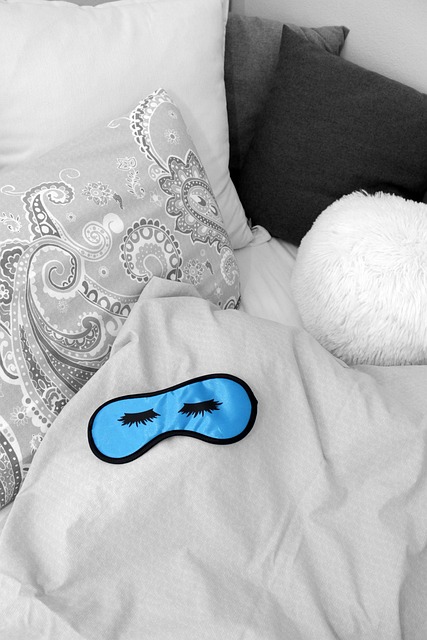Quality sleep is essential for physical health, mental clarity, emotional well-being, and overall quality of life. Unfortunately, insomnia—a condition characterized by difficulty falling asleep, staying asleep, or waking up too early—can disrupt this vital process. Chronic insomnia not only leaves you feeling fatigued but can also increase the risk of health issues like heart disease, obesity, and depression. The good news is that improving sleep hygiene —the habits and practices that promote consistent, restorative sleep—can significantly alleviate insomnia and enhance your sleep quality. Below are practical tips to help you establish better sleep routines and overcome sleep challenges.
1. Establish a Consistent Sleep Schedule
Why It Matters:
Your body thrives on routine. A regular sleep-wake cycle helps regulate your internal clock (circadian rhythm), making it easier to fall asleep and wake up naturally.
Tips:
- Go to bed and wake up at the same time every day, even on weekends.
- Avoid long naps during the day; if needed, limit them to 20–30 minutes.
- Gradually adjust your schedule if you’re significantly off track, shifting bedtime and wake time by 15–30 minutes each day until you reach your desired routine.
2. Create a Relaxing Bedtime Routine
Why It Matters:
A calming pre-sleep ritual signals to your brain that it’s time to wind down, reducing stress and preparing your mind and body for rest.
Tips:
- Engage in relaxing activities like reading, taking a warm bath, practicing meditation, or doing gentle stretches.
- Avoid stimulating tasks such as working, scrolling through social media, or watching intense TV shows before bed.
- Dim the lights an hour before bedtime to encourage melatonin production, the hormone responsible for sleep.
3. Optimize Your Sleep Environment
Why It Matters:
Your bedroom should be a sanctuary for sleep, free from distractions and discomforts that can interfere with rest.
Tips:
- Comfortable Mattress and Pillows: Invest in supportive bedding that suits your preferences and needs.
- Temperature Control: Keep your room cool (around 60–67°F or 15–19°C) for optimal sleep conditions.
- Darkness and Quiet: Use blackout curtains, eye masks, earplugs, or white noise machines to block out light and sound.
- Limit Electronics: Remove TVs, computers, and smartphones from your bedroom, or keep them powered off during sleep hours.
4. Limit Stimulants and Heavy Meals Before Bed
Why It Matters:
Certain substances and foods can interfere with your ability to fall asleep or stay asleep.
Tips:
- Avoid caffeine (coffee, tea, energy drinks, chocolate) at least 6–8 hours before bedtime.
- Refrain from nicotine, which acts as a stimulant and disrupts sleep patterns.
- Skip heavy, spicy, or sugary meals close to bedtime, as they can cause indigestion or spikes in blood sugar levels.
- If you’re hungry, opt for a light snack like a banana, yogurt, or a handful of nuts.
5. Manage Stress and Anxiety
Why It Matters:
Stress and racing thoughts are common culprits of insomnia. Learning to manage these feelings can greatly improve sleep quality.
Tips:
- Practice relaxation techniques such as deep breathing exercises, progressive muscle relaxation, or guided imagery.
- Journal before bed to unload worries or plan for the next day, clearing your mind for rest.
- Consider cognitive behavioral therapy for insomnia (CBT-I), a highly effective treatment that addresses underlying thought patterns and behaviors contributing to sleep problems.
6. Get Regular Physical Activity
Why It Matters:
Exercise promotes deeper, more restorative sleep by reducing stress, improving mood, and regulating hormones like cortisol and melatonin.
Tips:
- Aim for at least 150 minutes of moderate aerobic activity or 75 minutes of vigorous exercise per week.
- Incorporate strength training and flexibility exercises for balanced fitness.
- Avoid vigorous workouts within 2–3 hours of bedtime, as they may elevate your heart rate and make it harder to relax.
7. Limit Screen Time Before Bed
Why It Matters:
The blue light emitted by phones, tablets, and computers suppresses melatonin production, tricking your brain into thinking it’s still daytime.
Tips:
- Turn off electronic devices at least 1–2 hours before bed.
- Use “night mode” settings or blue-light-blocking glasses if you must use screens in the evening.
- Replace screen time with calming alternatives like listening to soothing music or practicing mindfulness.
8. Be Mindful of Alcohol Consumption
Why It Matters:
While alcohol may initially make you feel drowsy, it disrupts sleep architecture, leading to fragmented and poor-quality rest.
Tips:
- Limit alcohol intake, especially in the evening.
- Stop drinking at least 3–4 hours before bedtime to allow your body to metabolize the alcohol.
9. Address Underlying Health Issues
Why It Matters:
Conditions like sleep apnea, restless leg syndrome, chronic pain, or hormonal imbalances can contribute to insomnia.
Tips:
- Consult a healthcare provider if you suspect an underlying medical issue is affecting your sleep.
- Follow prescribed treatments or therapies tailored to your specific condition.
10. Avoid Clock-Watching
Why It Matters:
Frequently checking the time when you can’t sleep increases anxiety and makes it harder to relax.
Tips:
- Turn your alarm clock away from view so you’re not tempted to look at it.
- Focus on slow, steady breathing instead of worrying about how much sleep you’re missing.
11. Seek Professional Help When Needed
If lifestyle changes and improved sleep hygiene don’t resolve your insomnia, it may be time to seek professional guidance. Persistent insomnia lasting more than three months could indicate a deeper issue requiring specialized care.
Options for Treatment:
- Cognitive Behavioral Therapy for Insomnia (CBT-I): A structured program that addresses the thoughts and behaviors interfering with sleep.
- Sleep Studies: Overnight evaluations conducted in a lab or at home to diagnose disorders like sleep apnea.
- Medication: In some cases, short-term use of sleep aids under medical supervision may be appropriate.
